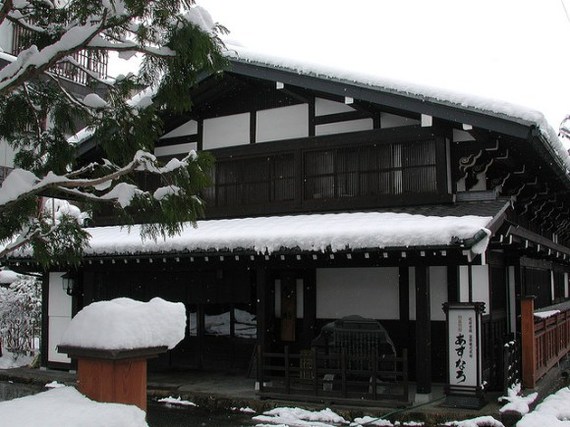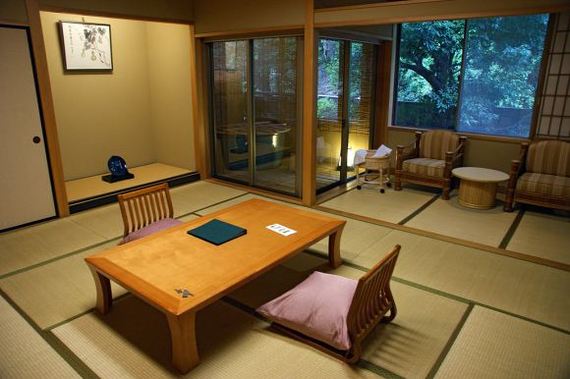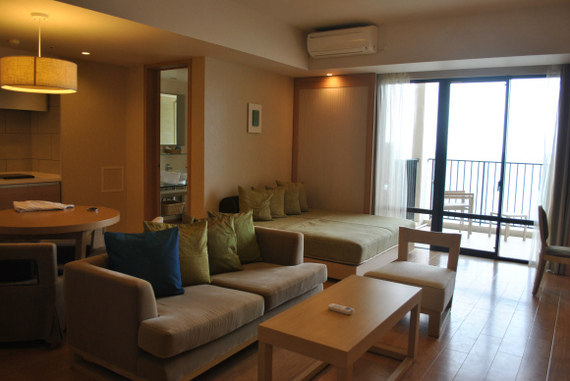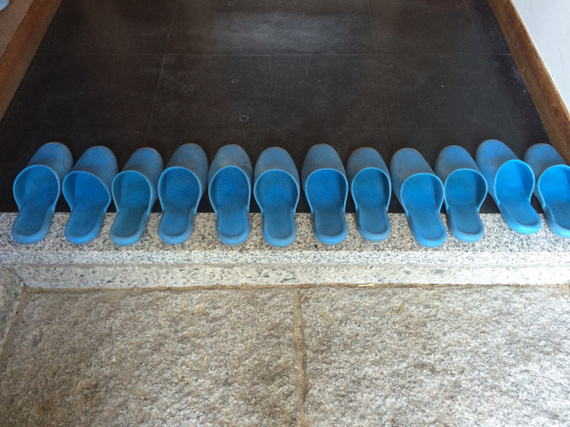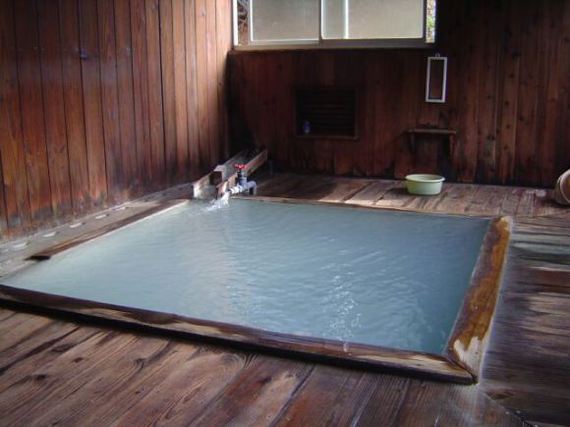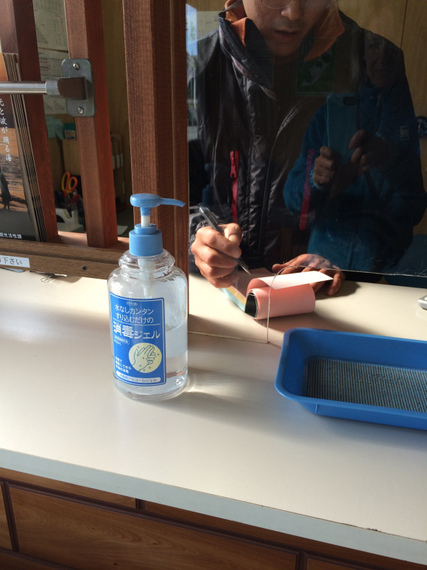Going to Japan this winter to experience their world-class skiing and snowboarding, or to see the Sapporo Snow Festival? Stay healthy while traveling in Japan with these 5 tips.
While most people associate snow sports with accidents such as broken legs or wrists, a surprising number of people end up in ER because of illness-everything from gastrointestinal disorders to ear infections and first-time asthma attacks.
I spent two winter seasons working in the hospital emergency room (as a translator) in Niseko, Hokkaido, Japan's most snow holiday destination for foreigners.
The good news is that most of these illnesses can be avoided, but different cultures pose different health risks and knowing what to watch out for beforehand can be tricky, if not impossible. By following some simple (but not necessarily so obvious) rules, you too can avoid the emergency room.
Let's start at the beginning then, booking your Japanese accommodation.
1. Japanese minshuku and ryokan
Staying in family-run minshuku and ryokan is a quintessential Japanese experience that everyone should partake in. Such places have several advantages over a hotel room including a traditional Japanese ambiance (straw tatami mat floors, futons), home-cooked meals, and being able to experience Japanese hospitality (omotenashi) at its finest.
But other than some top-of-the-line ryokan, most traditional style Japanese accommodation involves shared bathing and washing facilities. This is fine as long as you're prepared for it. But if you're not careful, these communal facilities (showers, sinks, etc) can be like a super highway for the spread of bacteria and viruses. Dr. Wuthrich, an American doctor who works out of Jackson Hole, Wyoming says that staying safe from viruses can be as simple as carrying antibacterial wipes with you. "Wipe down faucets, flush toilet knobs, and towel hooks before using them," she says. "The antibacterial wipes won't kill all the germs, but most of them."
if you catch colds easily or if you're paranoid about getting sick, choose a studio apartment, rental condo or hotel room where the only people you share facilities with are those who you know don't have a virus.
2. Asthma and respiratory illnesses
Avoid budget accommodation that is old. Such places may have not changed the tatami mats in years and the bedding may be old. Smoking is still popular in Japan so there may be cigarette smoke in the curtains and upholstery.
"Old accommodation is fine as long as it's clean," says Dr. Wuthrich, a previous resident of Japan. "Mites live in dirty bedding and carpet. Curtains are generally okay, but smoke and dust can still be a problem for those susceptible to asthma."
It's easier to make this mistake than you'd think. Booking accommodation online these days often means booking places sight unseen. Other times you may decide to book at the last minute and have to take what you can get. Get your reservations in early so you'll still have a choice of where to stay.
3. Communal slippers are okay if...
Upon entering any minshuku or ryokan, you're likely to be met by a line of slippers set out for guests to easily slide their feet into after having taken off their shoes. Yes, they're plastic and yes, they're yucky! Most foreigners envision nasty fungal spores living inside these slippers, but it turns out they're actually okay, according to Dr. Wuthrich, "...as long as you wear socks." Socks will protect you from most of the nasties, she says.
4. In the Onsen (Hot springs)
While everyone should try Japan's legendary onsen hot springs, make sure you, or your children, don't dunk their heads under the water. Not only is this considered rude, it can lead to ear infections and gastrointestinal problems (should you accidentally drink the water). Also, do not enter the water if you have open cuts, sores, or lesions. And of course, bathe thoroughly using the showers before you get in to the bath. A typical Japanese onsen is heated to temperatures of at least 38 C (100.4 F).
5. Wash your hands
Bacterial hand wash is everywhere in Japan. All public buildings have them and most places where money is exchanged will have a bottle sitting just ready to be squirted onto your filthy digits. Don't just look at the bottles and marvel at how clean the Japanese are-use the hand wash! Use it before and after you handle money. This hand sanitizer is sitting right next to the money tray (another admirable hygiene policy) , so you can't miss it.
Many Japanese wash their hands immediately after coming indoors just to make sure that any germs aren't brought inside and spread around. That's just good sound advice!
Have a happy, healthy vacation in Japan!
This article first appeared in RocketNews24
Copyright © RocketNews24
